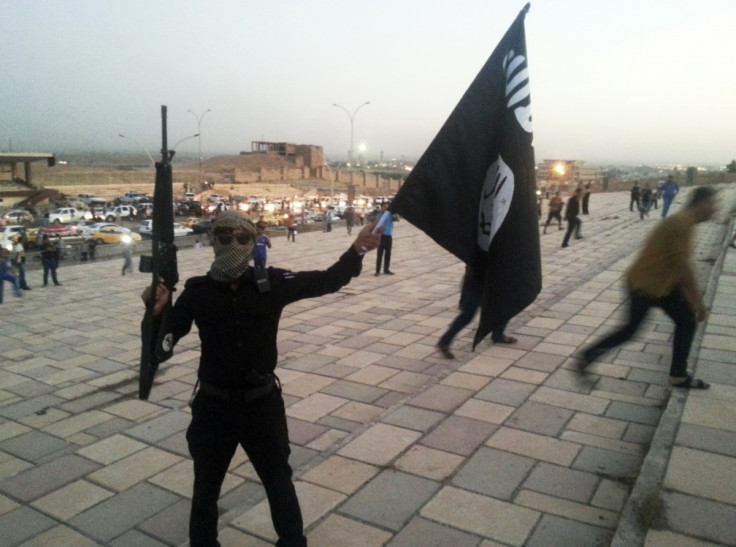The West Could Become a Tragic Pawn in Isis's Duel with Al-Qaeda

This week, reports emerged from the Iraq-Syria border that a local leader of Jabhat al-Nusra has sworn allegiance to Omar al-Shishani, one of the Islamic State of Iraq and the Levant's (Isis's) senior commanders. Certainly, this is a significant development, but it is worth dissecting the politics behind it to understand the importance of such a declaration of allegiance.
After all, Isis and Jabhat al-Nusra have been bedfellows in the recent past, so why should this latest alliance be any more troubling than before? One could be forgiven for thinking that it is simply gaining attention because Isis, led by Abu Bakr al-Baghdadi, has lately stormed the media to such an extent.
At the heart of the matter is a photo of al-Shishani accepting a bay'ah (oath of allegiance) from local Jabhat al-Nusra leader Abu Yusuf al-Masri, which emerged on Twitter on Wednesday morning. Such a pledge of loyalty is no small statement of intent, so this should not be overlooked. However, I would argue that the ideological implications of this alliance are far more important than the immediate strategic ones.
Indeed, controlling both sides of a border is nothing new for Isis: they've enjoyed control of the Northern Syria-Iraq border for months now and their transnational supply routes are already well secured. What's more important is why it matters to jihadism on the global level.
For the last fourteen months, there has been a fierce ideological battle for the mantle of international jihadism: Ayman al-Zawahiri, al-Qaeda Central's emir, has been fighting for his position after Abu Bakr al-Baghdadi flagrantly contested his authority by attempting to subordinate al-Qaida's Syria presence by announcing an unapproved merger between Jabhat al-Nusra and his own group, then known as the Islamic State of Iraq (ISI).
This did not go down well in the al-Zawahiri camp, and Al-Qaeda Central was quick to denounce the fusion of the two groups. Since then, in towns across Syria, there has been an uneasy and nebulous relationship between Isis and Jabhat al-Nusra. At times, the groups have operated under the same flag, at others they have fought fiercely with each other.
When al-Baghdadi's men blew up the mediator al-Zawahiri had appointed to tide things over between their respective groups, this relationship turned irrevocably sour. That's why the photo that emerged today is as important as it is. While al-Masri is by no means the first Jabhat al-Nusra figure to defect to Isis, his is a significant loss. It is yet another blow to the leadership position al-Zawahiri is desperately trying to cling onto, and could initiate a cascade of dissension that transforms the global jihadist status quo.
After all, it is a fact that, the more strategic, financial and ideological gains that Isis makes – and they've made a lot recently – the weaker al-Qaeda's support base will be. The two groups are now mutually exclusive. Unlike in days gone by, when one tacitly accepted the other, now Isis can only progress if al-Qaeda loses out, and vice versa.
At the heart of what's happening in Syria right now is a profoundly important ideological cleavage – already, what has emerged is a game changer. The standard of global jihadism is now being borne by Abu Bakr al-Baghdadi and, as social media channels show, the grassroots support he enjoys has skyrocketed.
What does this mean for the West, though? Are we any safer because al-Zawahiri has been undermined? The short answer is no.
In brief, there are two main reasons why these events should trouble us. First, this rivalry may cause al-Qaeda Central to lash out at the West to show that, while Isis does have territory, it is al-Qaeda alone that wages the fight against the far enemy. Second, the opposite may happen – al-Baghdadi may deem it necessary to assert his group's legitimacy on the global spectrum as well, and therefore direct an attack against the West.
So, this most recent pledge of allegiance by a Jabhat al-Nusra commander and Isis should worry us, but not because it will have a dramatic effect on the conflict in either Syria or Iraq. It should worry us because it is symptomatic of the continuously deteriorating relationship between al-Baghdadi and al-Zawahiri. While enmity between these two jihadist powerhouses is not a problem in itself, the blowback that could come of it most certainly is – this rivalry could well lead to either group lashing out against the West.
Charlie Cooper is programmes officer at Quilliam, an anti-extremism thinktank based in London. Visit the group's website or Twitter page to find out more about their work.
© Copyright IBTimes 2025. All rights reserved.





















